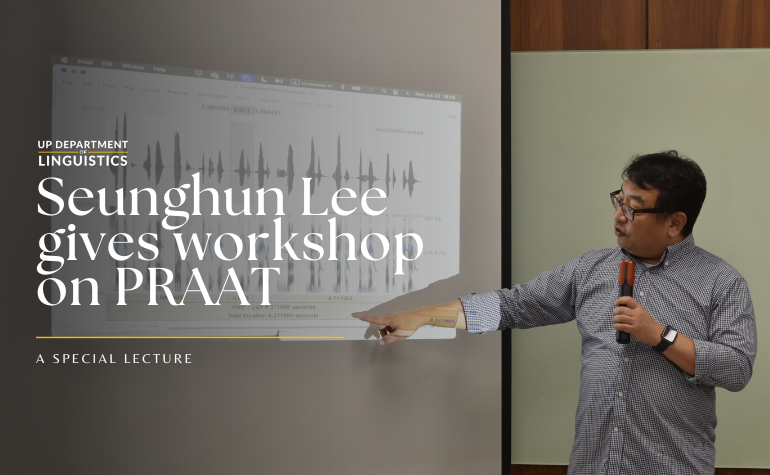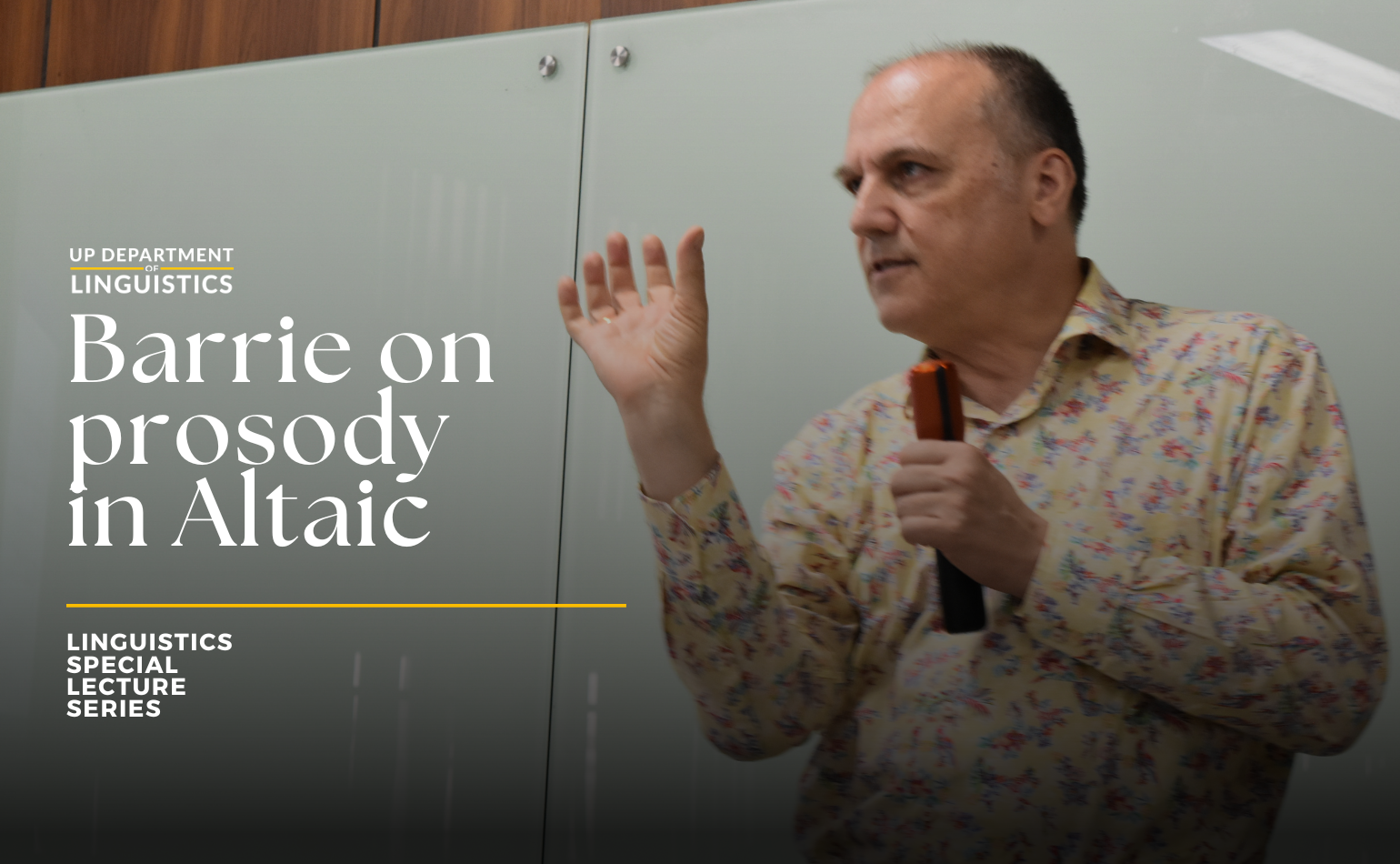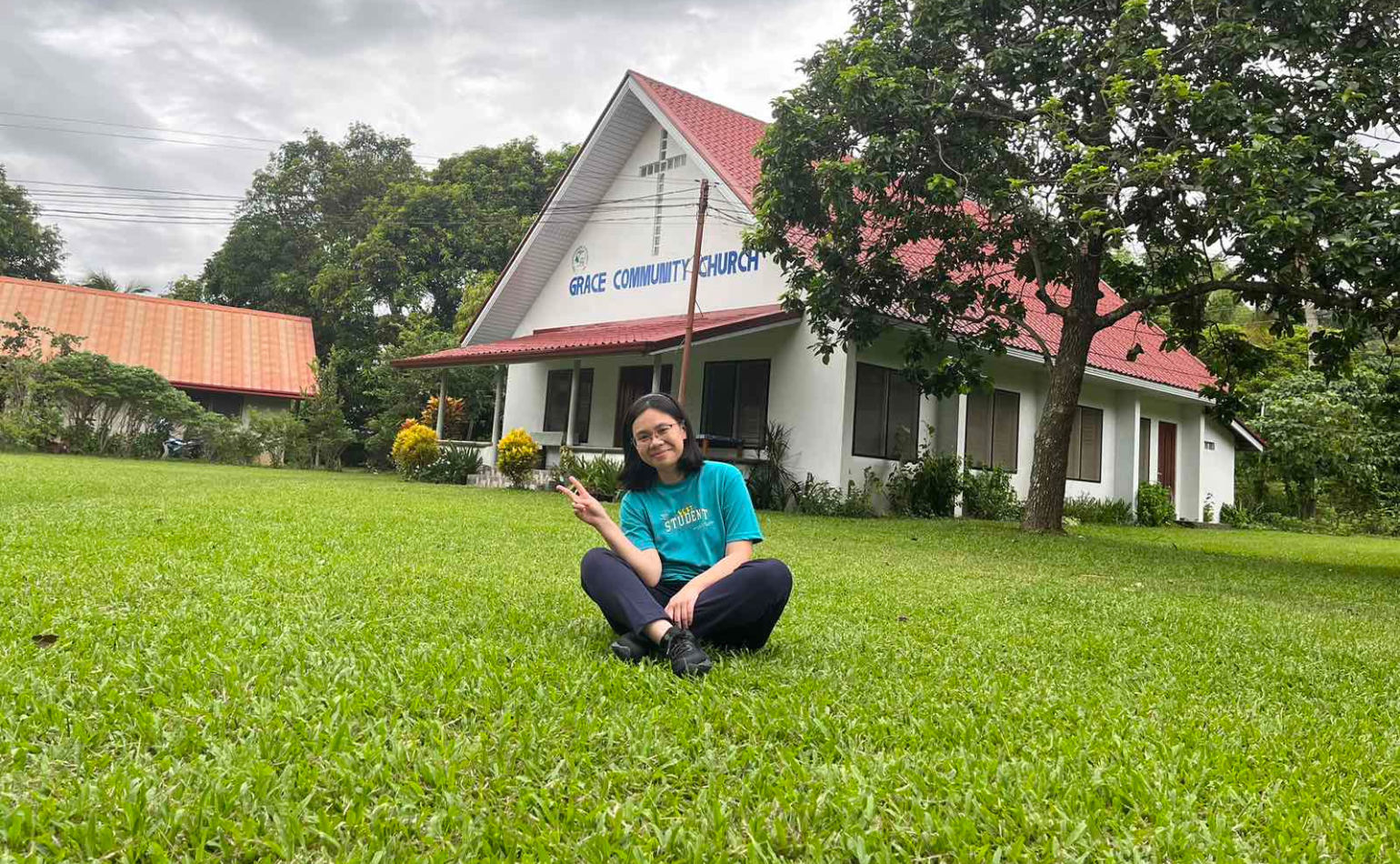
We are very proud to announce that MA Ling student Patricia Anne Asuncion will be joining the Department as a teaching associate starting A.Y. 2023-2024! She will be handling undergraduate linguistics courses and assisting in the delivery of GE classes under the supervision of a tenured faculty. Get to know our newest TA by reading on.
1. What got you into linguistics?
On my third year in college, I was fortunate to get a slot in the Lingg 1 class that I enlisted. I somehow had an idea what this course would be like since I previously took Eng 100 as an elective. I probably enlisted this class because I considered this a “safe and convenient” (read: humanities-related) GE. But I ended up loving everything about this course–the readings (including a Pinker essay), the discussions (one of which was Paz’s study on the liver as our seat of emotions), the activities (especially creating tree diagrams), and its overall structure. I also admire Sir Venson’s nonchalance. [John Venson Villareal is an alumnus of our MA in Linguistics program and was previously an instructor at our Department. He is now pursuing his PhD in Linguistics at the University of Hawai’i at Manoa and serving as a lecturer at the UP Department of English and Comparative Literature.]
Fast forward: During the pandemic, I thought about returning to school. I looked for my Lingg 1 notebook and read the note on the front page, which I wrote in 2017: “Kung bibigyan ako ng pagkakataon na magpalit ng course, o mag-aral ulit bilang isang undergrad, magsusumiksik ako sa Linguistics.” Since I quit from my job and had a lot of free time, I dared to enroll as an undergraduate student again.
It was also in mid-2021 that I joined the Tagalog annotation project headed by Ma’am Or, when I was looking for something that would distract me. I thought of quitting even before finishing my first data set: Hindi ko maintindihan kung ano ba talaga ang “root” ng isang sentence na wala namang verb, o kung anong kaibahan ng “ccomp” mula sa “xcomp.” I was also a bit embarrassed because I kept sending clarification emails to our project head. I remember sending a picture of handwritten sentences with dependency relation arrows, for verification. It was probably Ma’am Or’s replies and patience that motivated me to try harder. Matututunan ko rin ito.
In short: This sounds weird but I got interested in linguistics not because of some noble goal. I just happened to meet a remarkable GE teacher and an admirable project head. Linguistics seemed a special (and intriguing) field because amazing people (including the Lingg majors I know) choose to study it.
2. Can you tell us more about your background?
I graduated in 2019 with a degree in Comparative Literature (European Literatures). I worked as an archives assistant for almost two years in a government agency, and briefly worked as an office/teaching assistant at the UP Center for International Studies. I also worked on small projects, including proofreading of a children’s dictionary and some literacy-related materials.
3. What are some of the highlights of your experience as an MA student and RA at the Department so far?
As an MA student:
- I audited Sir Tuting’s ethnolinguistics class last semester. I enjoyed gaining new insights from my classmates who belong to different graduate programs, and who came from/reside in different parts of the country.
- I attempted to write a paper on Obo Manobo phonology for L204. It was my first time eliciting data using a word list and transcribing more than 500 words from a language I don’t understand. I struggled with stress placement.
- I enrolled in a field methods class during the midyear. We conducted our fieldwork in Nueva Vizcaya. Among my takeaways is the fact that language should and could not be studied in isolation. People and relationships, cultural context and nuances are all important in this exploit.
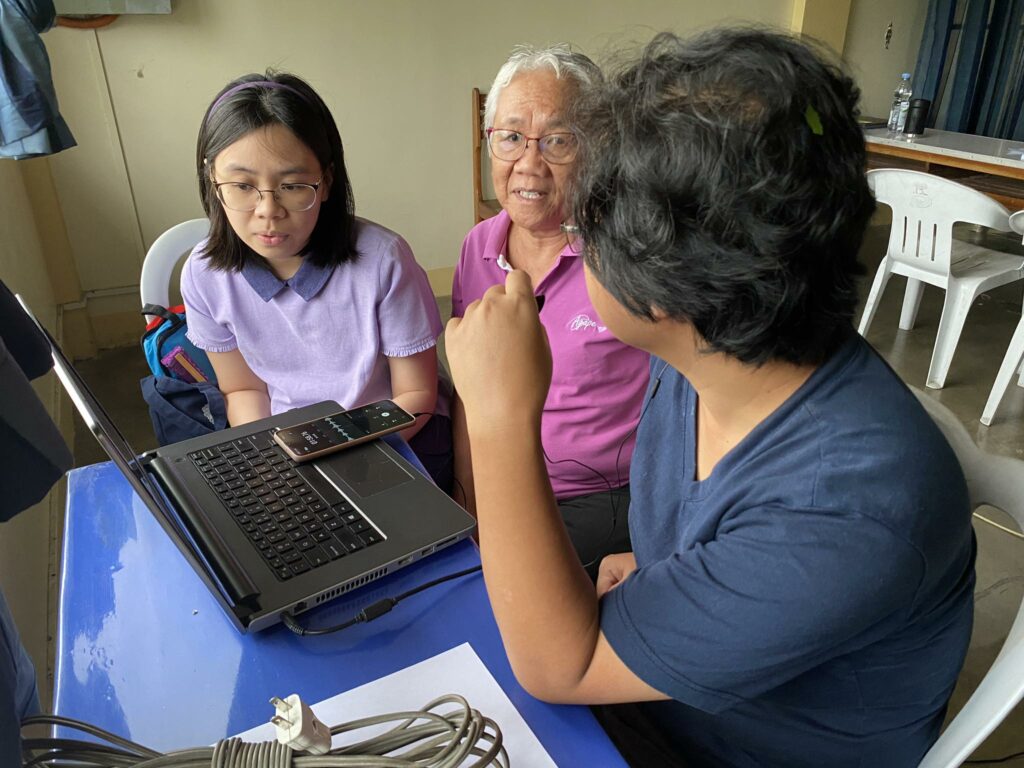
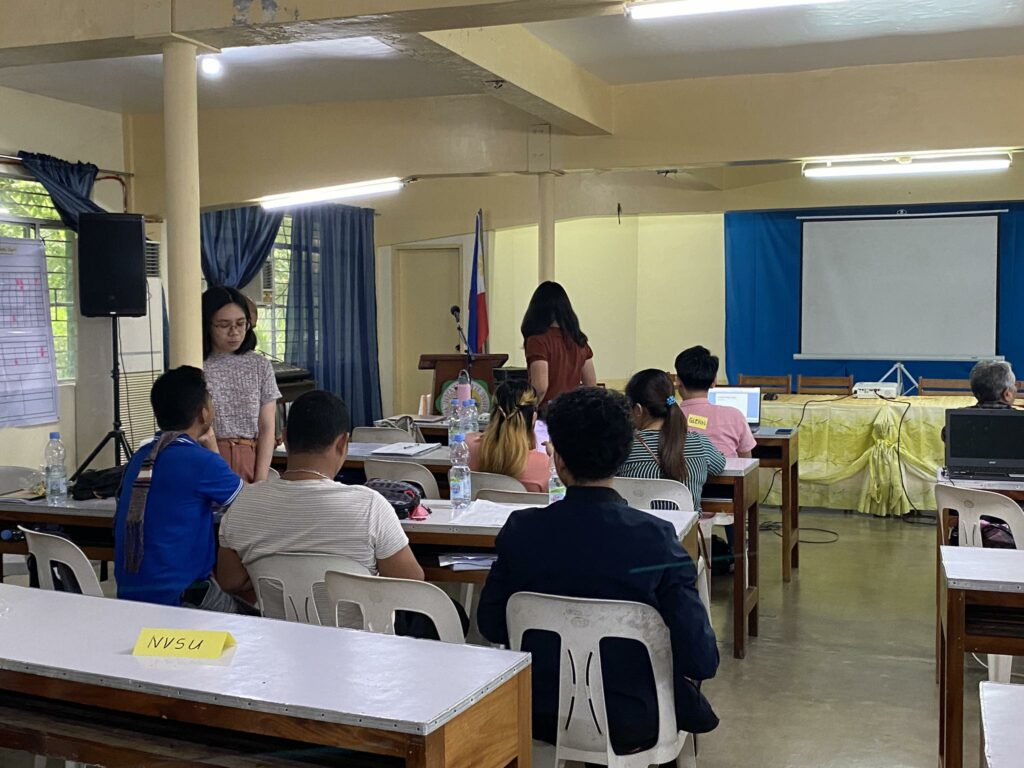
As an RA:
- Tagalog annotation project: This showed me one facet of a language’s complexity and made me see layers of connections/relations within constructions. It was also fulfilling to submit completed data sets (and receive corrections).
- The Katig Collective: A class project that we want to continue doing. I hope that Katig becomes a useful reference website/page, and that more people join the collective in the future.
- Oral History Project: I get to hear stories from members of the UP Lingg community and sometimes ask questions out of personal curiosity.
- Writing feature articles: My first task. This exposes me to research projects and activities of the Department, of some invited guests, and of other partners. I also learn how to write better thanks to the edited drafts.
I also like how I was able to get the opportunity to attend a GE workshop and participate in an international summer school this year upon the recommendation of the Department.
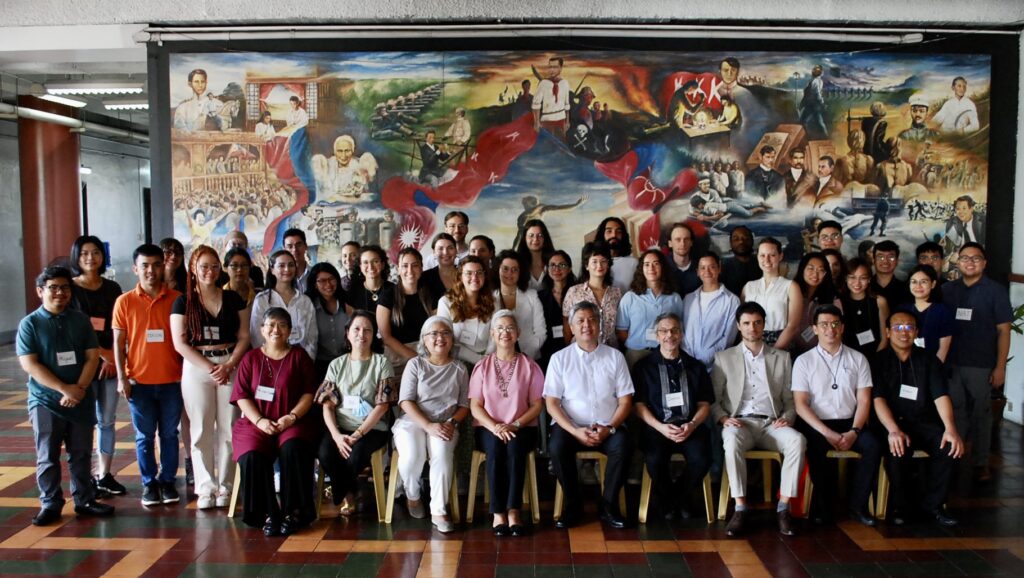
4. What is something that you look forward to in working as a TA?
Being on the other side of the classroom and playing a more active role in class. I love attending classes because this is a chance to hear other students’ answers and perspectives. I also like taking down notes (and writing side comments). I can keep doing these when I work as a TA, but I also think that this role will compel me to become more responsible and re-learn how to be organized. This will also be an opportunity to learn from members of the Department’s faculty outside the classroom.
5. What are your current research interests or what is something that you wish to work on?
I would like to explore the concept of alaala/pag-alala in Philippine languages: How is memory coded in our languages?
I also wish to gain a deeper understanding of language endangerment in our country: what kind of inclusive research or project can we do to truly address it; how can this be made relevant not just to a select few.
I also hope to contribute something relevant to the community-led documentation project of the Bugkalot team who hosted our fieldwork class last July.
6. Do you have any advice for your fellow grad students or those considering graduate studies?
It seems weird to receive advice from someone who is also struggling with her classes, but I think that it is important to stick to the basics of being a student: prepare for and attend class, take down notes, recite when you can, ask questions, and value learning. While it is a given that you should pay attention to your professor, remember to also listen to your classmates’ insights and inquiries–our peers do contribute to our learning in different ways.
Aside from hoping to gain personal enrichment, let us always try to do well as students because we have communities to learn from and serve.
7. Finally, what is something that you enjoy during your leisure time?
As a homebody, I enjoy being inside my room where I read, write, and watch shows. I barely read for fun nowadays, but I still try to keep a journal. I am very fond of Korean dramas, World War II films, and DW documentaries. I also love chatting with my younger sister about things that I find intriguing.
Published by UP Department of Linguistics

